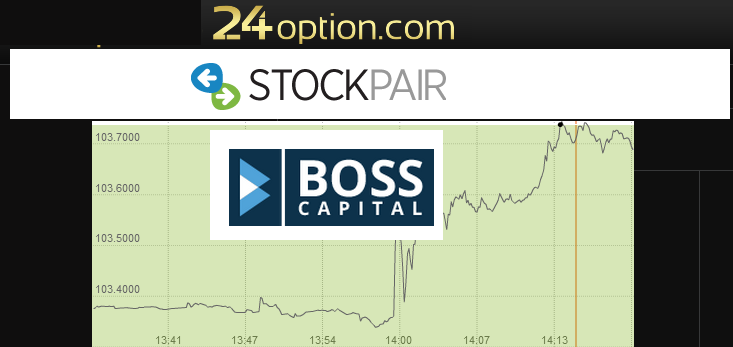Picking a Broker
Post on: 22 Май, 2015 No Comment

By Motley Fool Staff | More Articles
Brokers? Who needs ‘em?
Well, you do. In order to buy shares of stock, you need a stockbroker to help you with the transaction. In the same way that your local electronics retailer is the middleman between you and computer manufacturers, the broker (also known as a stockbroker) is the link between you and the stock exchange.
What does a broker do?
To better understand what a broker is and how one operates, let’s define the broker’s role.
- A stockbroker is a salesperson.
- A broker works for a stock brokerage house (like Merrill Lynch or Charles Schwab).
- The broker’s job is to carry out your transactions. (If you like Chinese food, the broker may also carry that out, but that’s between the two of you.)
Common questions about stockbrokers
Q. How does a stockbroker get paid?
A. Brokers are paid by salary, commissions on sales, or a mix of both.
Q. What qualifies someone to become a stockbroker?
A. The glamorous life of stockbroker is not for everyone. Stockbrokers must pass two licensing examinations, called the Series 7 and Series 63. Successfully completing these exams allows the broker to advise you, to solicit business from you, and to execute transactions on your behalf.
In short, brokerage houses employ brokers to execute your transactions, and in the case of full-service brokers, to advise you in making your investment decisions.
Although brokers may do their own research, they’re not research analysts — not one of the people about whom you might read, Sylvester J. Quibble of Hackensack Associates raised his estimate for Goosefeathers’ latest full-year earnings from $0.19 to $0.35 per share, citing resurgence in demand for eiderdown quilts among bilingual tots. Research analysts are other folks who work for brokerages, and they’re the ones doing that sort of enlightening, in-depth research of a company’s business and industry.
Full-service vs. discount
There are at least 60 discount brokerage houses, and many, many full-service brokerage houses. Just like searching for a mate, not every choice is suited to every taste, so you have to be a bit discerning and choose what best suits you. Most importantly, you must decide what you need. We can’t help you when it comes to finding a spouse, but we can provide a general description of the services offered by full-service and discount brokers.
Full-service brokers
These brokers tend to offer a wider variety of financial products, investment advice, and research than discount brokers. They may offer stocks, bonds, derivatives, annuities, and insurance. In exchange, they charge considerably higher fees.
Full-service brokers solicit business and are paid mostly by commissions. This means they get compensated not according to how well your portfolio does, but by how often you trade. In turn, that means it’s in your broker’s interest to have you trade as often as possible — one of the main reasons why we at The Motley Fool eschew full-service brokerages.

Discount brokers
Discount brokerages offer no advice or research — they simply transact your trades with no frills. Because they manage fewer products than their full-service counterparts, discounters charge considerably lower fees. They also often offer online order-entry services. Live brokers at these brokerages are usually paid a fixed salary to execute your trades. They don’t solicit, and they aren’t paid commissions. Discount brokerages make money by doing business in volume, competing mostly on price and reliability of the service: Whoever has the lowest prices and the best service gets the most trades.
So many brokers, so little time. which one should you choose? We Fools advocate do-it-yourself investing — we want everyone to do their own homework and make their own decisions, so we think discount brokers are the way to go. In fact, we’ve even got an area devoted to helping you select a discount brokerage. where you can find a comparison of online brokerages fees and services. We think you’re capable of learning whatever you need to know to invest successfully, and you can save big commission dollars in the process.
Online trading
Nearly all brokers offer online trading features. That’s great for those who feel comfortable with financial transactions over the Internet, but is it right for you? It’s wonderful to be able to access your account information at a moment’s notice, and to place trades 24 hours a day. We like the idea of using an online brokerage account, but we also realize that some people prefer to deal with a real person when they’re placing trades. Many discount brokers offer both options; in general, it’ll cost more to trade via a real live human being than to do so over the Internet.
When shopping around for an online discount broker, you should ask plenty of questions about its customer service department. Online brokerage accounts are becoming easier to use, and providing more and more information. Still, you need to know how you can access your account information if you can’t get online for some reason, yet still need to make a transaction. Will a live broker be accessible to you if you need to place a trade? What if you need a copy of your latest monthly statements for the IRS, and the web site is down?
If you’re comfortable with your computer and you don’t really need to hear that voice on the other end of the phone, we recommend that you go with a discount broker and trade online. If you need to hear a voice, the solution is simple: Choose a discount broker that offers telephone trading, too.
Placing an order
You’ve picked a broker, done your stock research, and you’re ready to place an order. How do you do it? What types of orders can you place? In general, and in keeping with our overall long-term buy-and-hold philosophy, there are only two terms you need to know: buy and sell.
Sound simple enough? It is, and it doesn’t really need to get any more complex than that. You buy a stock because you think it’s a great long-term prospect, and you only sell it when you either need the money, or feel that there’s a better place to put that money.
That said, there are different types of orders. To make sure you’re not bamboozled by the terminology when someone flings it at you, let’s look at the major types of orders.
First and simplest are buy orders and sell orders. You simply tell your broker how many shares of a given stock you wish to buy or sell.
You can also buy and sell at market — at the prevailing market price — or at limit — only at a certain price or lower. For example, you might place an order for 100 shares of XYZ Industries at a limit of $140; you’re only willing to buy those shares if you can do so at $140 or less.
When selling stocks, you can also use a stop limit. instructing your broker to sell your shares if they fall to a certain price. If you placed a sell stop on XYZ at $130, your broker would know to sell your shares if they fell to or below that particular price.
If it ain’t broker.
Just like the search for a spouse, finding the right broker isn’t always easy, but it can be well worth the effort. Now that you have a general understanding of how brokers and brokerages work, and some of the options available to you, forge ahead and learn more about which broker is right for you .














